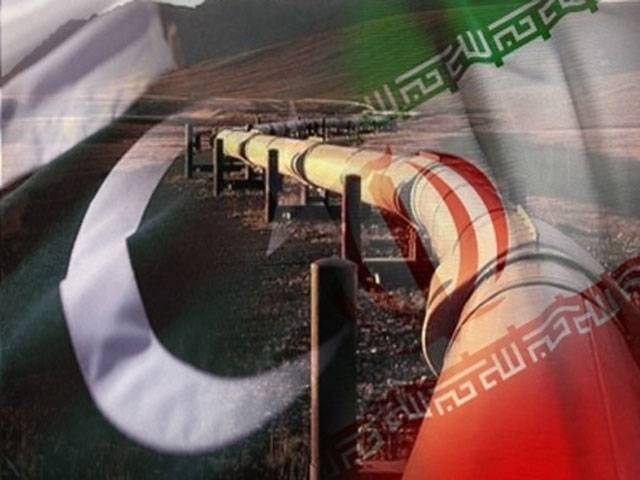ISLAMABAD - Two US-based firms have so far declined to provide required compressors for Iran-Pakistan (IP) gas pipeline project, resultantly the scheduled of Iranian gas flow to Pakistan has ostensibly become not possible.
To meet burgeoning energy needs of Pakistan, negotiation between Iran and Pakistan started in 1997 over Iran-Pakistan gas pipeline project and finally a gas purchase agreement was inked in 2009 between both the neighbouring countries for the supply of 7.50mcfd of gas. Iran has invested over $2 billion to construct the Iranian side of the pipeline. But there are serious doubts about how Pakistan could finance $2 billion needed to construct the pipeline, which also faces US opposition. So far Pakistan has done little to construct its own section of the project.
The Iran-Pakistan pipeline is designed to help Pakistan overcome its mushrooming energy needs. Under a valid contract, Pakistan is required to finish construction of the pipeline on its territory by the end of 2014 and in case Pakistan fails to buy gas from Iran till stipulated date and time then it will have to pay $30Lakh per day as penalty to the later.
Officials at petroleum ministry are of the opinion that fate of IP gas pipeline project is in doldrums following the imposition of international sanctions on Iran by the United States and the European Union. They said around the globe two US-based firms named as General Electric and Siemens are currently engaged in the manufacturing of required compressors for IP gas pipeline project but so far both have declined to deliver the said equipment. Besides, Iran has no additional gas to supply to Pakistan by December 2014 while it is currently remained unable to meet the agreed demand of Turkey. “If a contractor is chosen today and pipeline construction begins today, it will take four years to complete it. In given set of circumstances, Pakistan will be unable to take Iranian gas by the end of this year, and Iran will demand compensation under the terms of the contract,” said a senior official at petroleum ministry. Official sources also said, “Pakistan’s two gas utilities - SNGPL & SSGCL - are used to buy compressors from the said Americans companies. And, due to sanctions on Iran both utilities might face sanctions,” one of the official observed.”
Federal Minister for Petroleum and Natural Resources Shahid Khaqan Abbasi while responding to a calling attention notice in December 2013 said Pakistan is facing difficulties in hiring contractors and acquiring equipment to start work on Iran-Pakistan gas pipeline project due to international sanctions imposed by the United States and the European Union on Iran. While, the Iranian oil minister had previously said that he is not optimistic about Tehran’s gas exports to Islamabad.
Energy experts when contacted said that despite recent announcement of relaxation in the sanctions on Iran, IP gas pipeline project would face sanctions. And, if Pakistan constructs the gas pipeline on its side then it would bear serious brunt of the sanctions.
Impact of sanctions on Iran would surly be felt by Pakistan prior to the first flow of Iranian gas to the country. “Even, US President alone is not authorised to end the sanctions imposed on Iran,” one of the experts opined.
The sources further said that outgoing government has not fulfilled the international standards in a gas supply contract with Iran on IP gas pipeline project. At present, the incumbent government in its struggle to fulfil the commitment made by the previous government pertain to IP gas pipeline project is striving very hard to avoid the penalty, secure extension in the deadline of December 2014 for first flow of IP gas project and keep on waiting the end of the sanctions imposed on Iran by US and European Union.
The US opposed the project but the then leaders of both Iran and Pakistan had vowed to implement what they refer to as the ‘peace pipeline’. Iran’s former president Mahmoud Ahmadinejad had pledged the loan. However, in December 2013, Iran had cancelled $500m loan to Pakistan and warned of cash penalty over pipeline delay. Iran’s Deputy Oil Minister Ali Majedi said Iran has no obligation to finance the Pakistani side of the project and also didn’t have the money. The minister said Tehran will demand compensation if Islamabad fails to take Iranian gas by end of next year.
It is worth mentioning here that following the Iranian offer to approach third party for the financing of the project. Pakistan was in search of third party including European companies to finance the project. Pakistan is committed to build a multi-billion-dollar gas pipeline from neighbouring Iran, but the threat of international sanctions had made the task difficult. The reporter has tried his level best to get the version of US-based firms but all efforts remained in vain.
Friday, April 19, 2024
US Firms deny compressors for IP gas pipeline project

Opposition objects to oath-taking of MNAs amid lawlessness
5:15 PM | April 19, 2024
Electioneering to end on Friday night ahead of by-polls in 21 constituencies
5:14 PM | April 19, 2024
Fawad Chaudhry granted bail in 14 cases related to May 9 violence
5:13 PM | April 19, 2024
British Army chief lauds Pakistan Army's professionalism, expertise
5:12 PM | April 19, 2024
Israeli aircraft fire missiles at Air Force assets in Iran: Report
3:52 PM | April 19, 2024
A Tense Neighbourhood
April 19, 2024
Dubai Underwater
April 19, 2024
X Debate Continues
April 19, 2024
Hepatitis Challenge
April 18, 2024
IMF Predictions
April 18, 2024
Kite tragedy
April 19, 2024
Discipline dilemma
April 19, 2024
Urgent plea
April 19, 2024
Justice denied
April 18, 2024
AI dilemmas unveiled
April 18, 2024
ePaper - Nawaiwaqt
Advertisement
Nawaiwaqt Group | Copyright © 2024





